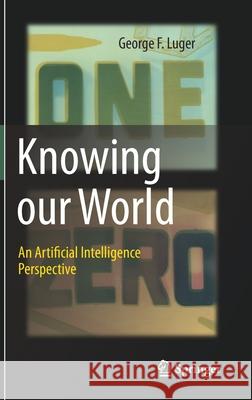Knowing Our World: An Artificial Intelligence Perspective » książka
topmenu
Knowing Our World: An Artificial Intelligence Perspective
ISBN-13: 9783030718725 / Angielski / Twarda / 2021 / 256 str.
Knowing Our World: An Artificial Intelligence Perspective
ISBN-13: 9783030718725 / Angielski / Twarda / 2021 / 256 str.
cena 644,07
(netto: 613,40 VAT: 5%)
Najniższa cena z 30 dni: 616,85
(netto: 613,40 VAT: 5%)
Najniższa cena z 30 dni: 616,85
Termin realizacji zamówienia:
ok. 16-18 dni roboczych.
ok. 16-18 dni roboczych.
Darmowa dostawa!
Kategorie:
Kategorie BISAC:
Wydawca:
Springer
Język:
Angielski
ISBN-13:
9783030718725
Rok wydania:
2021
Wydanie:
2021
Ilość stron:
256
Waga:
0.56 kg
Wymiary:
23.39 x 15.6 x 1.75
Oprawa:
Twarda
Wolumenów:
01
Dodatkowe informacje:
Bibliografia
Wydanie ilustrowane
Wydanie ilustrowane











